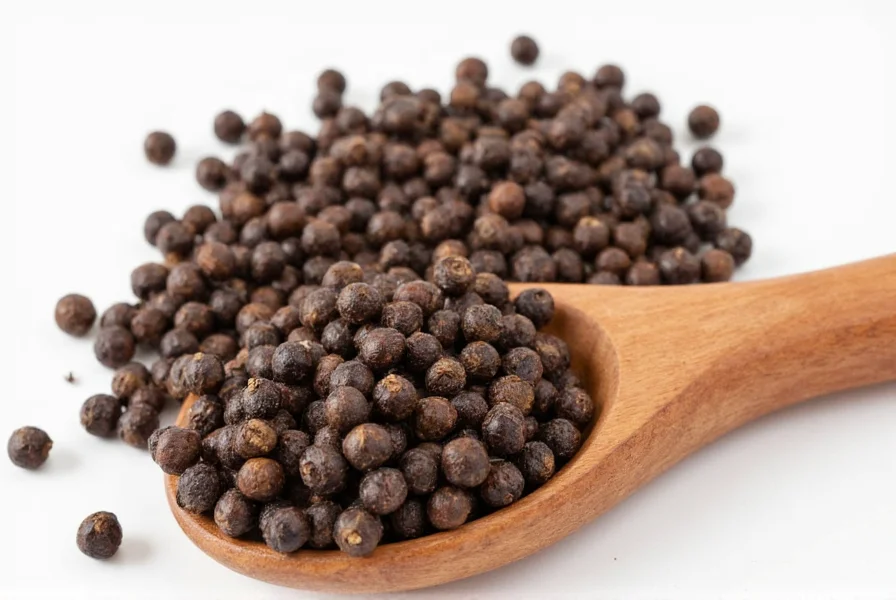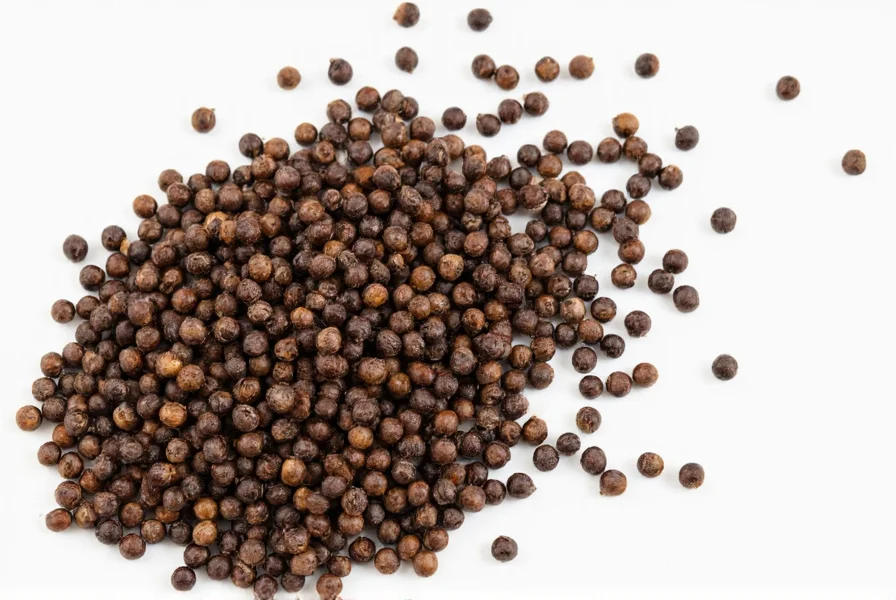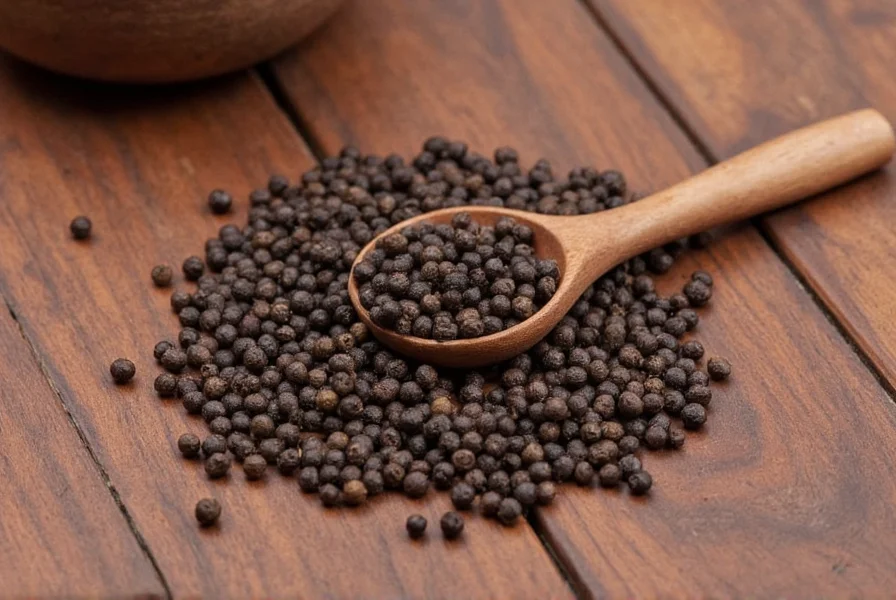For centuries, black pepper (Piper nigrum) has been valued not just as a kitchen staple but as a functional food with notable health properties. Modern research confirms that the piperine content—comprising 5-9% of black pepper—delivers measurable physiological benefits when incorporated into daily nutrition. Unlike many trending 'superfoods,' black pepper's most significant contribution to health isn't direct healing but rather its remarkable ability to enhance the effectiveness of other beneficial compounds.
The Science Behind Piperine
Piperine, the alkaloid responsible for black pepper's pungency, works through multiple biological pathways. Most notably, it inhibits enzymes in the liver and intestines that break down nutrients and medications, effectively increasing their bioavailability. This mechanism explains why traditional Ayurvedic medicine often combines black pepper with other therapeutic ingredients—a practice now validated by contemporary science.
| Compound | Absorption Increase with Piperine | Key Research Findings |
|---|---|---|
| Curcumin | Up to 2,000% | Significantly higher blood concentration levels maintained for longer periods (Planta Medica, 1998) |
| Resveratrol | Approximately 229% | Enhanced metabolic stability and bioavailability (Molecular Nutrition & Food Research, 2015) |
| Selenium | About 30-40% | Improved tissue distribution and utilization (Biological Trace Element Research, 2010) |
Evidence-Based Health Applications
Nutrient Bioavailability Enhancement
The most scientifically substantiated benefit involves black pepper's synergistic relationship with other nutrients. When consumed with turmeric, piperine dramatically increases curcumin absorption—making the combination significantly more effective than turmeric alone. This principle extends to various fat-soluble compounds, explaining why nutritionists recommend adding black pepper to vegetable dishes and supplement regimens.
Digestive Support
Black pepper stimulates hydrochloric acid production in the stomach, facilitating more efficient protein digestion. Research published in the Journal of Ayurveda and Integrative Medicine demonstrated that black pepper consumption increased digestive enzyme activity by approximately 32% in clinical trials. This makes it particularly valuable when consumed before meals containing substantial protein.
Antioxidant Properties
While not as potent as dedicated antioxidant sources, black pepper contributes meaningful free radical scavenging activity. A 2020 analysis in Antioxidants journal found that piperine effectively neutralizes peroxyl radicals and supports the body's endogenous antioxidant systems, particularly glutathione production.
Inflammation Modulation
Emerging research suggests piperine may influence inflammatory pathways. A 2021 study in Phytotherapy Research indicated that piperine supplementation reduced markers of inflammation in participants with metabolic syndrome. However, researchers emphasized that culinary amounts alone likely provide modest effects, with more significant impacts requiring concentrated forms under medical supervision.

Practical Implementation for Health Benefits
To maximize black pepper's health potential, consider these evidence-based approaches:
- Pair with turmeric: Add 1/20 teaspoon (approximately 1/4 of a standard pinch) of black pepper to turmeric-containing dishes or supplements
- Include in vegetable preparations: The piperine enhances absorption of carotenoids and other fat-soluble nutrients in cooked vegetables
- Use freshly cracked: Whole peppercorns retain piperine better than pre-ground pepper—grind just before use
- Combine with healthy fats: Piperine's fat-soluble nature means consuming it with olive oil, avocado, or nuts improves its effectiveness
Important Considerations and Limitations
While black pepper offers notable benefits, several important limitations exist:
- Therapeutic effects require consistent culinary use—occasional sprinkling provides minimal benefit
- Piperine may interact with certain medications by increasing their absorption (consult healthcare providers if taking prescription drugs)
- Excessive consumption (more than 1-2 teaspoons daily) may cause gastrointestinal irritation in sensitive individuals
- Black pepper alone cannot compensate for poor dietary patterns or replace medical treatments
The European Food Safety Authority considers black pepper safe at culinary doses, but concentrated piperine supplements require medical supervision. For most people, incorporating 1/4 to 1/2 teaspoon of freshly ground black pepper daily into meals represents an optimal balance of benefit and safety.

Conclusion
Black pepper's health value lies primarily in its role as a bioavailability enhancer rather than a standalone therapeutic agent. When strategically incorporated into daily nutrition—particularly alongside other beneficial compounds like curcumin—it delivers measurable improvements in nutrient utilization. The scientific consensus supports moderate culinary use as a safe and effective way to enhance the nutritional value of meals, making this ancient spice a valuable component of evidence-based dietary practices. As with any dietary component, consistency and appropriate pairing yield the most significant benefits rather than isolated, excessive consumption.
Frequently Asked Questions
How much black pepper should I consume daily for health benefits?
For bioavailability enhancement, 1/4 to 1/2 teaspoon (approximately 1-2 grams) of freshly ground black pepper daily provides optimal benefits without risk of adverse effects. This amount can be distributed across meals rather than consumed all at once.
Can black pepper really increase turmeric absorption by 2000%?
Research published in Planta Medica (1998) demonstrated that 20mg of piperine (equivalent to about 1/20 teaspoon of black pepper) increased curcumin bioavailability by 2,000% in human subjects. This dramatic improvement occurs because piperine inhibits metabolic breakdown of curcumin in the liver and intestines.
Does the way I prepare black pepper affect its health benefits?
Yes, preparation significantly impacts effectiveness. Whole peppercorns retain piperine better than pre-ground pepper. For maximum benefit, grind peppercorns immediately before use and combine with healthy fats, as piperine is fat-soluble. Heat during cooking doesn't degrade piperine significantly, making it suitable for cooked dishes.
Are there any medications that interact with black pepper?
Piperine can increase absorption of certain medications including blood thinners, antiepileptics, and some antidepressants. If you take prescription medications, particularly those with narrow therapeutic windows, consult your healthcare provider before significantly increasing black pepper consumption or taking piperine supplements.
Can black pepper help with weight management?
Some preliminary research suggests piperine may influence fat metabolism and thermogenesis, but human evidence remains limited. A 2012 study in the Journal of Agricultural and Food Chemistry showed piperine might inhibit формирова adipogenesis (fat cell formation) in vitro, but these effects haven't been consistently demonstrated in human trials at culinary doses.











 浙公网安备
33010002000092号
浙公网安备
33010002000092号 浙B2-20120091-4
浙B2-20120091-4